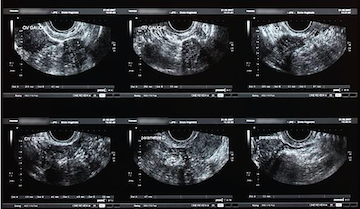Le Diagnostic Prenatal (DPN) a été implanté en France au début des années 1970 sous l'impulsion de chercheurs biologistes et cliniciens. L'organisation des pratiques fut longtemps déléguée à une association de professionnels. L'entrée dans la « modernité thérapeutique », dans les années 1990, s'accompagne d'un encadrement éthique et juridico-scientifique des pratiques visant leur homogénéisation sur l'ensemble du territoire avec l'instauration des Centres pluridisciplinaires de diagnostic prénatal (CPDPN) et de l'Agence de la biomédecine. Après avoir retracé l'histoire de l'implantation du DPN en France, l'article compare les activités des CPDPN à partir de données quantitatives nationales colligées par l'Agence de la biomédecine et d'une enquête ethnographique conduite dans deux des centres. L'analyse montre que l'homogénéité des pratiques affichée dans les discours officiels n'est qu'apparente, avec des variations importantes d'un centre à l'autre du nombre d'autorisations d'interruption de grossesse pour malformation fœtale. Ancrées dans des histoires locales singulières, ces différences touchent aux modes d'organisation du travail, à la conduite des délibérations et aux processus de décision, à la tolérance face au risque de handicap, et montrent que la régulation des pratiques laisse aux professionnels de médecine fœtale une certaine autonomie, non plus individuelle mais collective, reflétée dans des « identités » de centre.
Biographie
Isabelle Ville est sociologue du handicap, directrice de recherche à l'Inserm-Cermes3 et directrice d'études à l'EHESS, responsable du programme Handicaps & Sociétés de l'EHESS. Au cours des cinq dernières années, ses recherches ont porté sur « les enjeux du diagnostic prénatal dans la prévention des handicaps », d'abord dans le cadre d'un contrat ANR qu'elle a coordonné puis avec le soutien de la Région Ile de France (programme PICRI). Elle a coordonné sur ce thème un numéro spécial Quand le handicap interroge la naissance. Alter, European Journal of Disability Research, 2011, 5(1) et publié, avec Véronique Mirlesse The uses of ultrasonography in relation to fœtal malformations in Rio de Janeiro, Brazil. Social Science & Medicine, 2013, 87, 168-175. Plus récemment, elle s'est engagée dans une recherche sur « les défis de l'école inclusive en France ». Elle est co-fondatrice de la revue ALTER, European Journal of Disability Research, vice-présidente de ALTER, European Society for Disability Research et co-auteure d'une Introduction à la sociologie du handicap, De Boeck, 2014.
Practitioner's attitudes towards the risk of fetal anomaly in France. When regulation goes hand-in-hand with professional autonomy
Prenatal diagnosis (PND) was introduced in France in the 1970s at the initiative of biologist and clinician researchers. For many years the organisation of practices was delegated to an association of professionals. Entry into “therapeutic modernity” in the 1990s went hand in hand with an ethical, legal and scientific framework designed to homogenise practices throughout the country, with the creation of multidisciplinary prenatal diagnosis centres (CPDPN) and the Agence de la biomédecine. After retracing the history of PND development in France, the article compares the activities of CPDPNs, using an ethnographic study carried out in two of the centres and national quantitative data compiled by the Agence de la biomédecine. Analysis shows that the homogeneity of practices described in official discourse exists in appearance only, there being major variations from one centre to another in the number of authorisations for pregnancy termination due to foetal malformation. Rooted in singular local history, these differences relate to methods of organisation, to the ways in which deliberations and decision-making take place and to varying levels of tolerance towards the risk of disability; they show that the regulation of practices allows foetal medicine practitioners a certain amount of autonomy that is collective rather than individual and which is reflected in the centres' “identities”.
Biography
Isabelle Ville is a sociologist of disability, research director at the French Institute of Health and Medical Research (Inserm-Cermes3) and director of studies at the French School for Advanced Studies in the Social Sciences (EHESS) where she is responsible for the Handicaps & Societés Program. Over the past five years, her research has focused on "issues of prenatal diagnosis in disability prevention", from the perspectives of health professionals and from the perspective of women and couples. She co-edited on that topic a special issue of Alter, European Journal of Disability Research in 2011 and published with Véronique Mirlesse two articles in Social Science & Medicine, in 2013 and 2015. More recently, she has been engaged in research on "the challenges of inclusive education in France." She is co-founder of the ALTER journal European Journal of Disability Research, President of ALTER, European Society for Disability Research and co-author of an Introduction to Sociology of disability, De Boeck, 2014.
- Présentation



